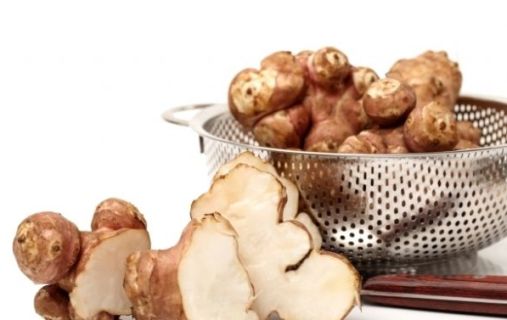Jerusalem artichokes: Beneficial properties
The Jerusalem artichoke (Helianthus tuberosus) are an edible tuber, native of North America. Elongated, its hue varies from white, burgundy and brown.
It reached Europe in the seventeenth century, and for a time was consumed food, until the potato relegated to the background. However, this particular food hides many properties. Thus, among others, it is a diuretic food especially for its high water content (about 80%). To a lesser extent, contains carbohydrates, fiber, vitamins and minerals.
Table of Contents
Properties of Jerusalem artichoke
This plant blooms in late summer and is characterized by a green stem and flowers of golden yellow.
There are two varieties of Jerusalem artichoke, off-white and burgundy, we can find on the market in late summer and autumn-winter.
In addition to its water content, as we have noted, it brings proteins, sugars, fiber, amino acids, vitamins A and B, potassium, iron and magnesium.
Check More: Olive oil types and benefits
Jerusalem artichoke Benefits
Jerusalem artichoke, like the traditional artichokes, especially recommended in low calorie diets. It also helps cleanse the intestines (very useful in cases of constipation).
This food also helps reduce the absorption of sugar, triglycerides and cholesterol, and cares for the health of the eyes. It is considered as a natural tonic in cases of physical fatigue, anemia or stress. It is well tolerated by the body, in particular by the liver.
Other benefits to note is that promote digestion and help balance the intestinal flora, especially suitable for those suffering from intestinal disorders.
Its diuretic effect makes Jerusalem artichoke is an ideal ally against cellulite and problems of fluid retention.
Finally, Jerusalem artichoke can be taken during pregnancy and even after birth, whether it favors because the production of milk during breastfeeding.
Side effects of Jerusalem artichoke
Jerusalem artichoke must be hard, no dents, and must be kept in a cool and dry place, avoiding contact with air. It has a fleshy white pulp and a very nice and delicate flavor on the palate, being similar to the classic taste of artichokes.
In the kitchen, it is a very versatile food, as can be consumed raw to not lose any of its nutritional properties, sliced in salads, grated or simply seasoned with extra virgin olive oil or lemon.
It is also ideal to prepare in the oven, boiled and even mashed. In any case, it is important not to overdo daily amounts to keep the body unable to absorb the inulin present in this food.
The excessive consumption of this vegetable, in fact, can cause diarrhea, abdominal pain, intestinal gas and bloating. The daily recommended dose for adult is 200 grams which corresponds to a medium sized artichoke.
